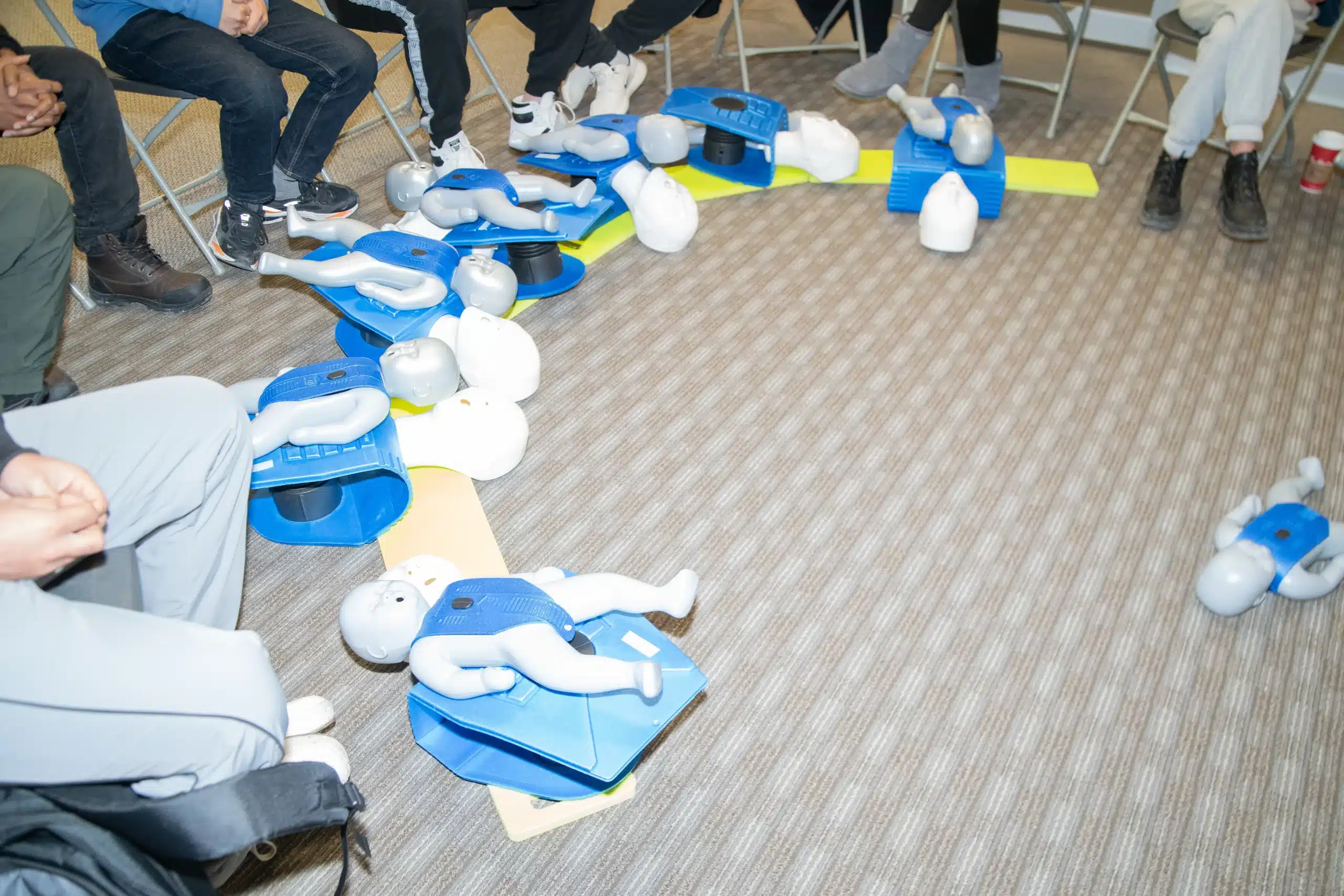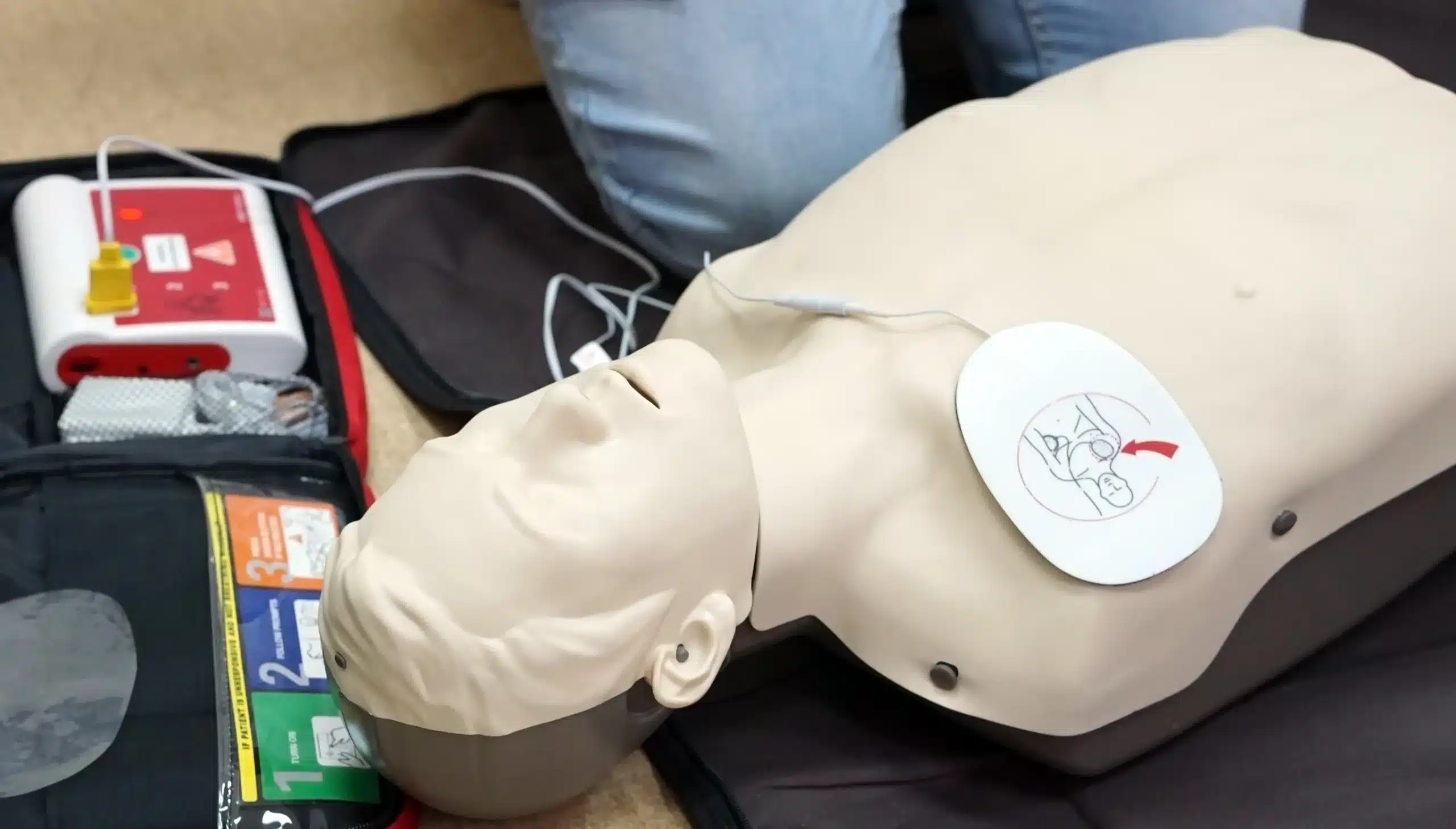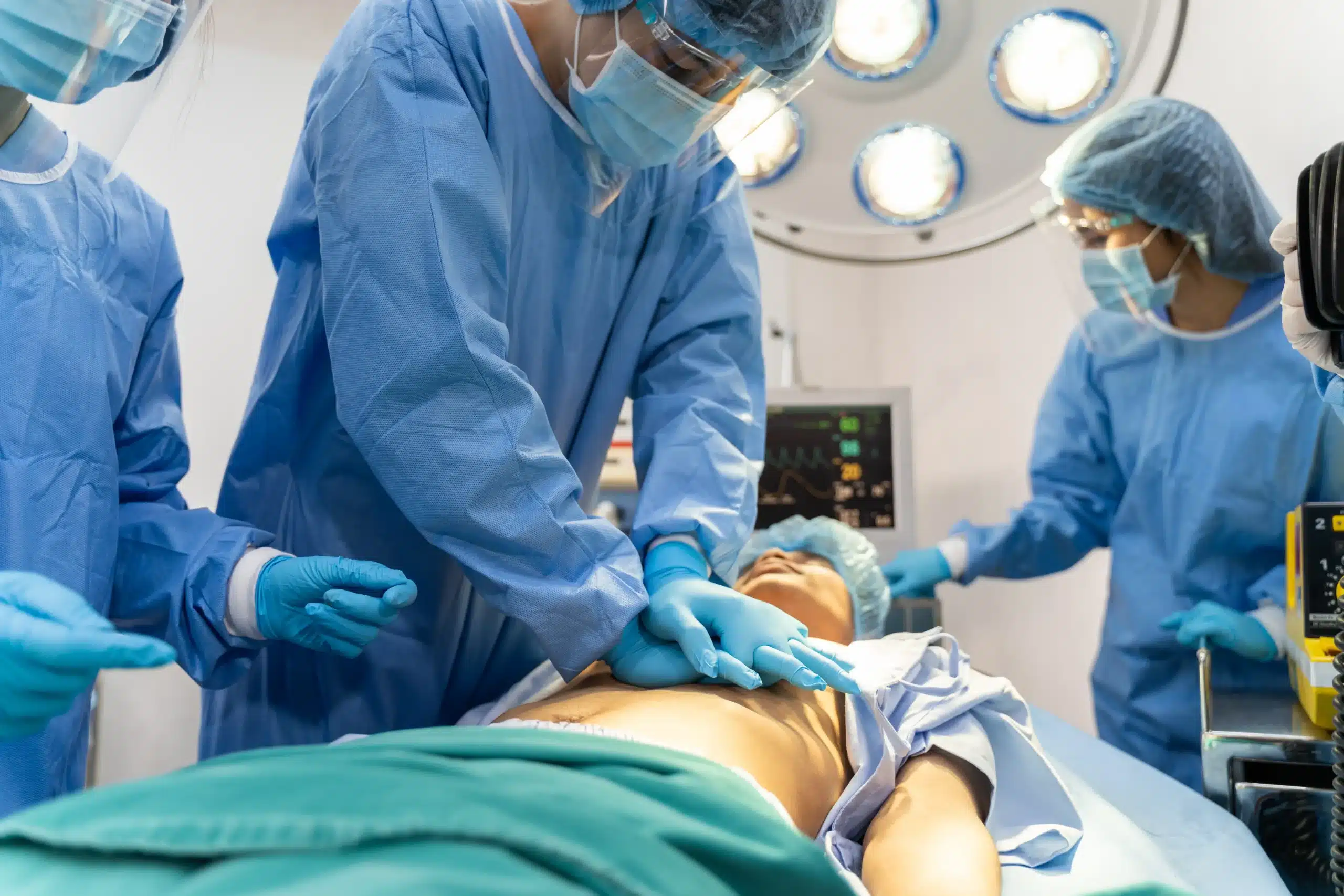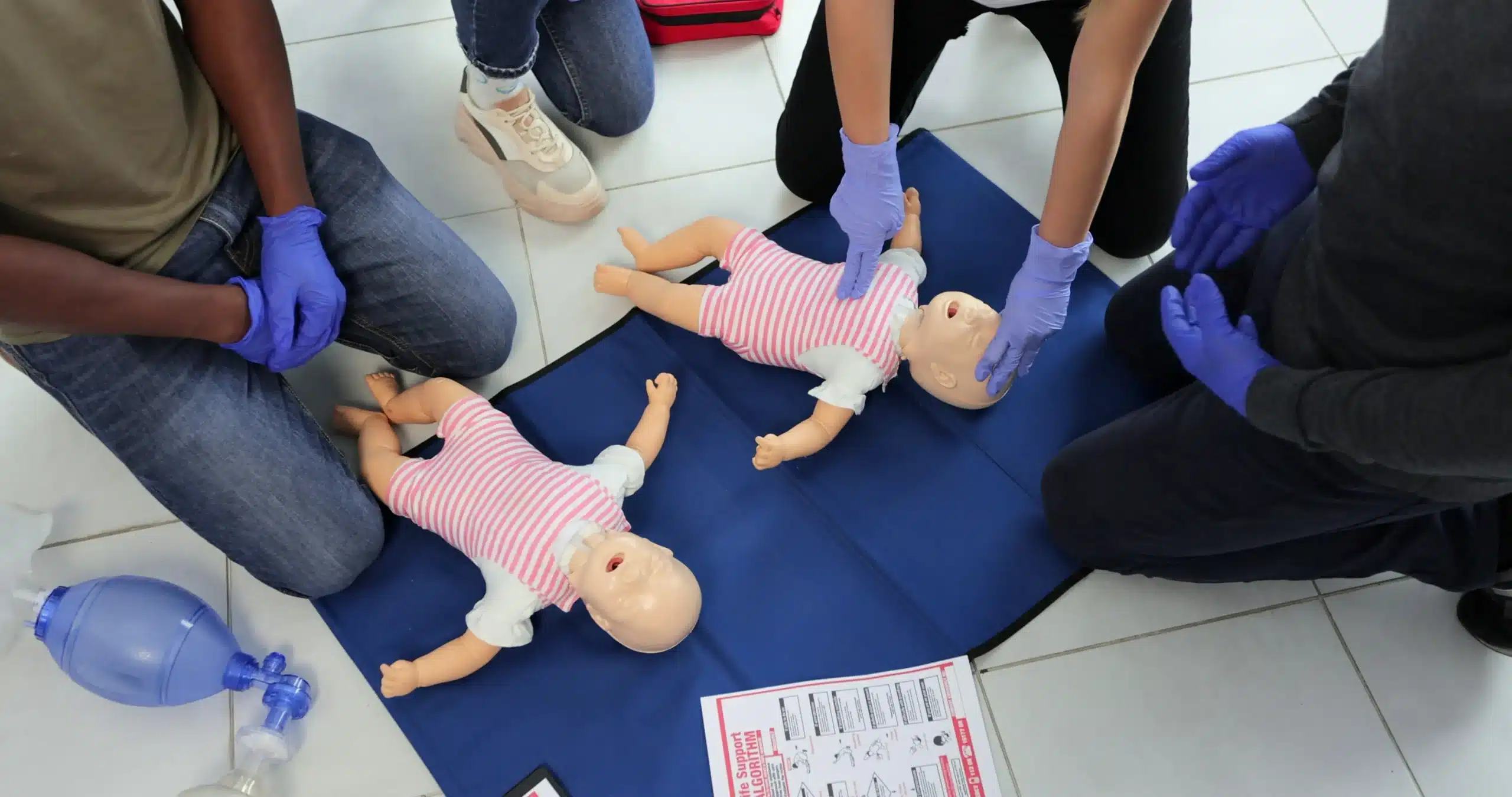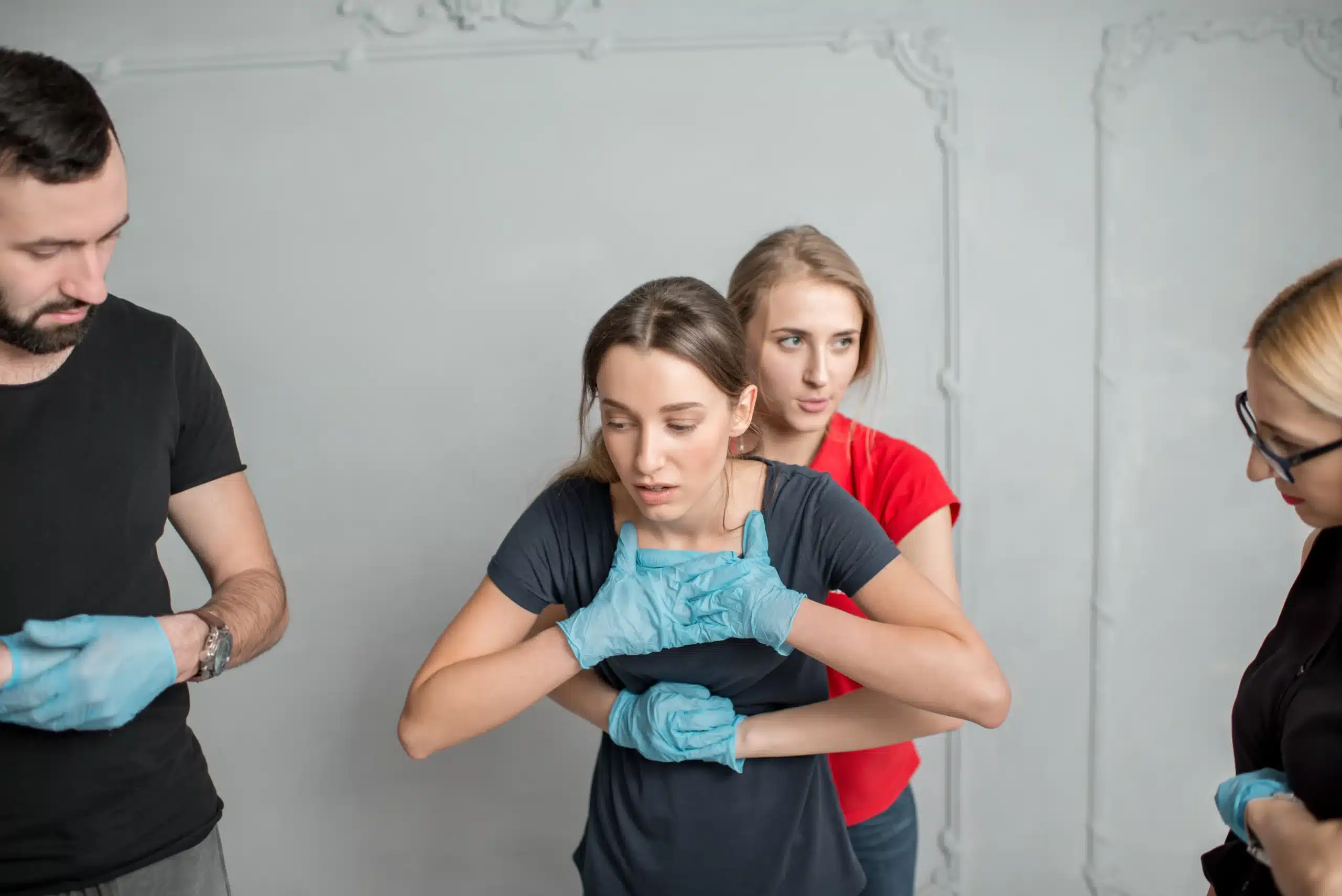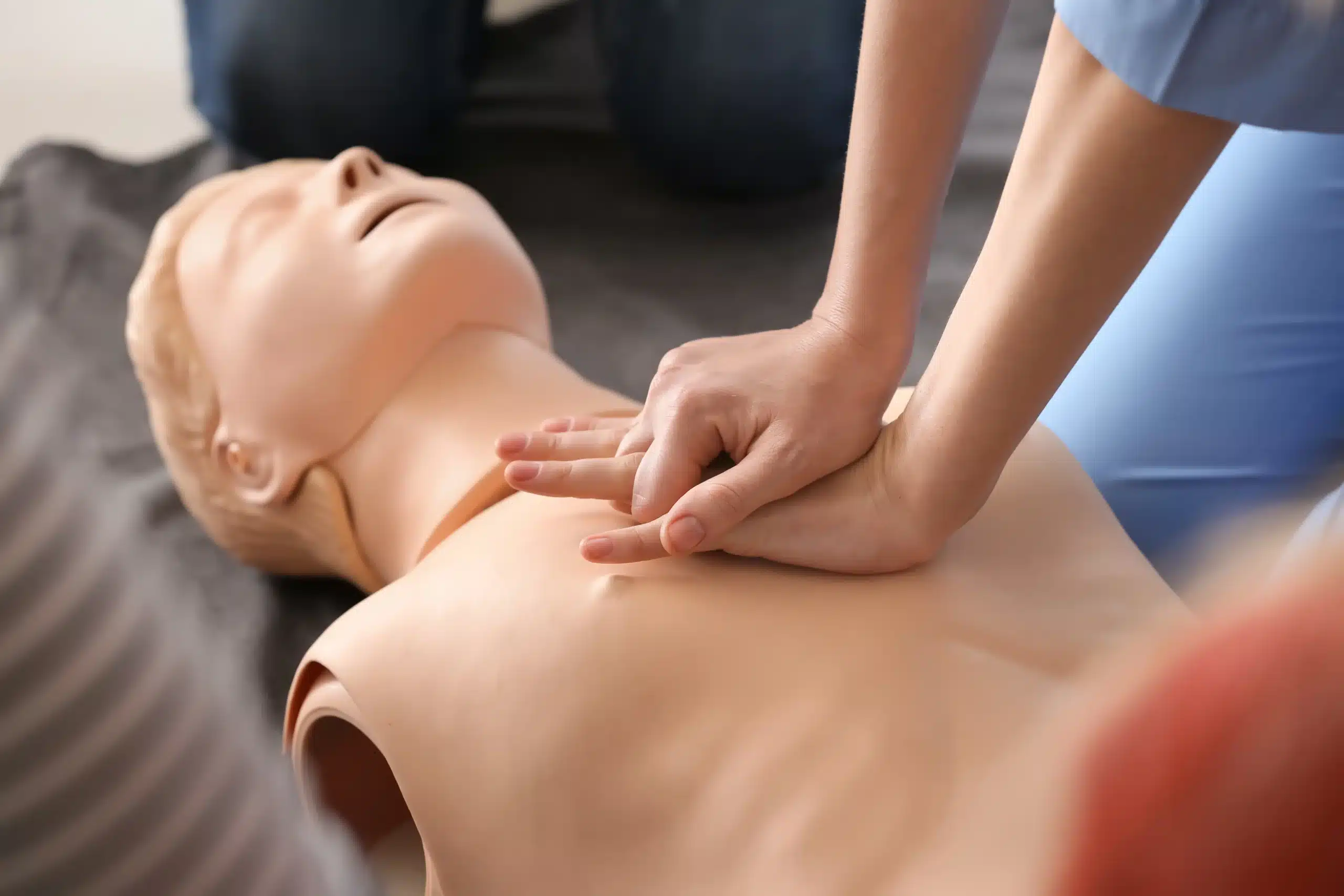Need your ACLS certification but struggling to find a course that works with your hectic San Francisco schedule? ACLS HeartCode in SF offers a flexible solution. This blended learning program combines online modules with a hands-on skills session, giving you the freedom to learn at your own pace and on your own time. In this comprehensive guide, we’ll explore everything you need to know about ACLS HeartCode in SF, including the benefits of blended learning, how to choose the right provider, and tips for acing both the online portion and the in-person skills test. We’ll also cover certification renewal and provide resources to help you succeed.
Key Takeaways
- ACLS HeartCode blends online learning with hands-on practice: This flexible approach lets you complete the coursework at your own speed and schedule the in-person skills session when it’s convenient.
- Finding the right training center is key: Consider factors like cost, location, schedule flexibility, and the provider’s accreditation when making your decision. Safety Training Seminars offers a low price guarantee and convenient locations across Northern California.
- Preparation is essential for success: Familiarize yourself with the course content, practice your skills, and use available resources to master the material and confidently complete both the online and in-person components. Remember to renew your certification every two years.
What is ACLS HeartCode in San Francisco?
ACLS HeartCode is the American Heart Association’s (AHA) blended learning course for Advanced Cardiovascular Life Support certification. It combines online learning with in-person skills practice, giving you the flexibility to learn at your own pace and complete the online portion from anywhere. This makes it a great option for busy professionals in San Francisco and the surrounding areas, including Daly City, San Mateo, and Oakland. If you’re looking for a convenient and effective way to get your ACLS certification, HeartCode might be the perfect fit.
What is ACLS HeartCode?
HeartCode ACLS blends online learning with hands-on practice. This flexible format lets you learn the course material at your own pace and complete the online modules whenever and wherever it’s convenient for you. This approach is ideal for those juggling work, family, and other commitments. The online portion uses interactive simulations and engaging content to teach you the core concepts of ACLS.
Key Features and Benefits
HeartCode ACLS offers more flexibility than traditional classroom-based courses by allowing you to complete the cognitive portion online at your own speed. This self-paced learning allows you to focus on areas where you need more review and quickly move through concepts you already grasp. Plus, you can access the online modules 24/7, making it easy to fit the training into your busy schedule.
ACLS HeartCode vs. Traditional ACLS
The HeartCode ACLS course has two parts: self-directed online learning and a hands-on skills practice session with an AHA ACLS instructor. Traditional ACLS courses typically involve a full day or more in a classroom setting. With HeartCode, you complete the cognitive portion online, then schedule a shorter in-person session to demonstrate your skills and receive your certification. This blended learning approach offers a more convenient and personalized learning experience.
Advantages of Blended Learning
HeartCode ACLS provides flexible learning. You combine self-paced online modules with a hands-on skills session, allowing you to fit the training into your schedule more easily. This blended learning format also caters to different learning styles. The online portion allows for visual and interactive learning, while the in-person session provides kinesthetic learning and personalized feedback from an experienced instructor. For more details on pricing and what’s included, check out our low price guarantee.
ACLS HeartCode Costs & Providers in SF
Pricing for Initial Certification & Renewal
In San Francisco, initial ACLS certification typically costs between $260 and $290, while renewal courses are usually around $190. Comparing prices from different providers is always a good idea, but remember cost isn’t everything. Consider the overall value—including the quality of instruction, schedule flexibility, and convenient locations. We’ll discuss choosing the right provider in more detail later.
Safety Training Seminars: What We Offer
At Safety Training Seminars, we know how important these life-saving skills are. We’re committed to keeping our American Heart Association courses (including CPR, BLS, ACLS, and PALS) competitively priced, making them accessible to everyone in the San Francisco, Daly City, San Mateo, and Oakland areas. Check our ACLS course calendar for current pricing and available dates. Our low price guarantee gives you extra confidence that you’re getting the best possible value.
Other Local Providers
Finding the right training center is key. Here are a few other providers offering ACLS courses in the San Francisco area:
HeartStart CPR
HeartStart CPR offers AHA-certified ACLS initial and renewal classes throughout the San Francisco Bay Area, with locations in San Francisco, San Jose, Oakland, Pleasant Hill, and San Ramon.
Bay Area CPR
Bay Area CPR offers online ACLS certification and renewal courses in San Francisco through the American Heart Association.
UCSF Kanbar Center
The UCSF Kanbar Center provides several American Heart Association (AHA) courses, including BLS, ACLS, and PALS. These are primarily designed for UCSF students, staff, and faculty.
Enroll in ACLS HeartCode: A Step-by-Step Guide
This section walks you through enrolling in an ACLS HeartCode course, from the online modules to the in-person skills session. We’ll also cover certification, prerequisites, and what to do if you have any questions.
Online Component Overview
HeartCode ACLS uses blended learning, combining online coursework with an in-person skills session. This flexible format lets you learn at your own pace and complete the online modules from anywhere with an internet connection, making it ideal for busy schedules. You can learn more about the online portion of the HeartCode ACLS course on our blog.
In-Person Skills Test Requirements
While the online component offers flexibility, both the HeartCode and traditional ACLS courses require an in-person skills check-off with an American Heart Association (AHA) instructor. After completing the online portion of HeartCode ACLS, you’ll schedule a hands-on skills session to demonstrate your competencies and receive feedback from a certified instructor.
Certification & Renewal
Once you complete both the online coursework and the in-person skills session, you’ll receive your AHA ACLS certification, valid for two years. This nationally recognized certification validates your proficiency in advanced cardiovascular life support.
Prerequisites & Time Commitment
It’s recommended that you hold a current BLS certification before enrolling in the ACLS HeartCode course. The online portion takes approximately three hours, though your time may vary.
Troubleshooting Enrollment
You’ll receive an email within one to two business days regarding your enrollment status. If you have any issues or haven’t received an email, ensure you’ve met the prerequisites. Check your email for any communication from the training center, and don’t hesitate to contact them with questions.
Ace Your ACLS HeartCode Training
Prepare for the Online Portion
ACLS HeartCode’s blended learning approach lets you complete the cognitive portion online at your own pace. This means you can study whenever and wherever it’s convenient. Before you start, ensure you have a reliable internet connection and a quiet workspace. Familiarize yourself with the course materials and use any practice questions or simulations. Thorough note-taking and reviewing key concepts will help solidify your understanding.
Tips for the Hands-On Skills Test
The hands-on skills test is crucial for demonstrating your practical abilities. Both HeartCode and traditional ACLS require an in-person skills check-off with an AHA instructor. Practice essential skills like CPR, airway management, and rhythm recognition beforehand. Ask your instructor for feedback during practice sessions to refine your technique and build confidence before the evaluation.
Maintain Your Certification
Your ACLS certification is valid for two years. You’ll receive your AHA ACLS certification after completing the online coursework and in-person skills session. Renew your certification a few months before it expires to avoid lapses. Staying current with the latest guidelines ensures you’re always prepared to provide high-quality care. Check out our renewal courses to easily stay up-to-date.
Benefits of Self-Paced Learning
A major advantage of ACLS HeartCode is the flexibility of self-paced learning. This blended learning format lets you tailor your study schedule to your life. Control your learning, whether you prefer short study bursts or longer sessions. This personalized approach can improve knowledge retention and make learning less stressful.
Advantages of Immediate Feedback
The in-person skills session provides immediate feedback from your instructor. This real-time guidance helps identify areas for improvement and reinforces correct techniques. After practicing, your instructor will evaluate your skills and offer personalized feedback. This direct interaction is a key benefit of the ACLS HeartCode program. Our instructors at Safety Training Seminars are dedicated to providing supportive and thorough feedback, helping you master the necessary skills.
Choose the Right ACLS HeartCode Provider in SF
So, you’re ready to get your ACLS certification—fantastic! Finding the right training provider is an important step. This section breaks down what to look for and why Safety Training Seminars might be a good fit for you.
Choosing a Provider: Factors to Consider
Choosing an ACLS course requires careful consideration. Think about what works best for your schedule and learning style. Do you prefer in-person interaction or the flexibility of online learning? How much time do you have to dedicate to the course? What’s your budget? Also, double-check if you need any prerequisites, like a current BLS certification. Some providers offer combined BLS and ACLS courses which can be a great way to save time and money.
Why Choose Safety Training Seminars?
We’re proud to offer the ACLS HeartCode program at Safety Training Seminars. We work hard to keep our American Heart Association courses (including CPR, BLS, ACLS, and PALS) competitively priced. We believe these essential, life-saving skills should be accessible to everyone. We also offer a low price guarantee, so you can feel confident you’re getting a great value. Plus, with over 60 locations across Northern California, including our convenient San Francisco office serving San Francisco, Daly City, San Mateo, and Oakland, finding a class near you is easy.
Verify Provider Accreditation
Before signing up with any provider, make sure they are an accredited American Heart Association training center. This ensures the course meets the AHA’s rigorous standards and that your certification will be recognized. The HeartCode ACLS course offers the same certification as a traditional ACLS course. You’ll learn the same essential skills whether you choose HeartCode or a traditional course. The blended learning format combines online modules with a hands-on skills practice session.
Additional Resources & Support
One of the biggest advantages of HeartCode ACLS is its flexibility. You can complete the online modules at your own pace, fitting the training around your busy schedule. Then, you’ll schedule an in-person skills session to demonstrate your proficiency. Look for a provider that offers plenty of available dates and times for these sessions. At Safety Training Seminars, we offer classes daily, making it easier to find a time that works for you. We also provide RQI programs for those needing to maintain their resuscitation skills.
Related Articles
- Advanced Cardiac Life Support (ACLS) in SF: Get Certified – San Francisco CPR Classes
- ACLS HeartCode Oakland: Your Certification Guide – San Francisco CPR Classes
- ACLS Courses in SF: Your Complete Guide – San Francisco CPR Classes
- AHA ACLS Classes in San Francisco (Bayshore) – San Francisco CPR Classes
- Best Online ACLS Classes in San Francisco – San Francisco CPR Classes
Frequently Asked Questions
What is the main difference between ACLS HeartCode and a traditional ACLS course? ACLS HeartCode blends online learning with a shorter, in-person skills session, while traditional ACLS courses typically involve a full day or more in a classroom. HeartCode offers greater flexibility, allowing you to complete the coursework at your own pace online before scheduling your skills check-off. Both formats lead to the same AHA ACLS certification.
How long does it take to complete the ACLS HeartCode program? The online portion of HeartCode ACLS takes approximately three hours to complete, though this can vary depending on your learning style and pace. You’ll also need to schedule a separate in-person skills session, which typically takes a few hours.
Do I need any prerequisites before taking ACLS HeartCode? While not strictly required by all training centers, it’s highly recommended that you have a current BLS certification before starting ACLS HeartCode. A strong foundation in basic life support will make it easier to grasp the more advanced concepts covered in ACLS. Some providers offer combined BLS and ACLS courses, which can be a convenient and cost-effective option.
How much does ACLS HeartCode cost in San Francisco? The cost of ACLS HeartCode in San Francisco varies depending on the training provider but typically ranges from $260 to $290 for initial certification and around $190 for renewals. Remember to compare not just the price, but also the quality of instruction, schedule flexibility, and location convenience when choosing a provider.
How do I choose the right ACLS HeartCode training provider? Consider factors like accreditation, schedule flexibility, location convenience, instructor experience, and overall value when selecting a provider. Look for an AHA-accredited training center with a solid reputation, convenient class times and locations, and instructors who offer supportive and personalized feedback. Don’t hesitate to contact different providers and ask questions to find the best fit for your needs.
